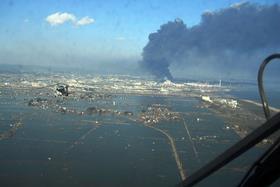
Japan's devastating March earthquake, tsunami and nuclear disaster could have a 'dire' effect on the country's food and agriculture industry, with the impact felt far beyond Japan's borders, Rabobank analysts have warned.
Food-safety concerns and supply shortages are likely to limit exports and cause imports to rise from trading partners like the US, Australia and China, Rabobank said in a report published last week (April 7).
Imports of fresh fruits and vegetables, in particular, are set to increase over the coming months, the study said. The earthquake and tsunami destroyedvegetable farms and orchards in northeastern Japan. And consumers are concerned about local produce contamination from the damaged Fukushima nuclear plant.
'While the situation is still evolving, the domino effect of the disaster will likely result in more imports from trade partners, such as the US, Australia and China,' lead author ofRabobank's 'Japan earthquake - Magnitude of Impacts on Food and Agriculture'Jean-Yves Chow said.'The radiation issues at the Fukushima plant have heightened food safety concerns at a time when Japanese self-sufficiency is already low.'
Japan may need to revise its food security strategy to improve consumer confidence - both domestic and international – in its food industry following the radiation problems caused by partial melt-down at the Fukushima nuclear plant, he added.



